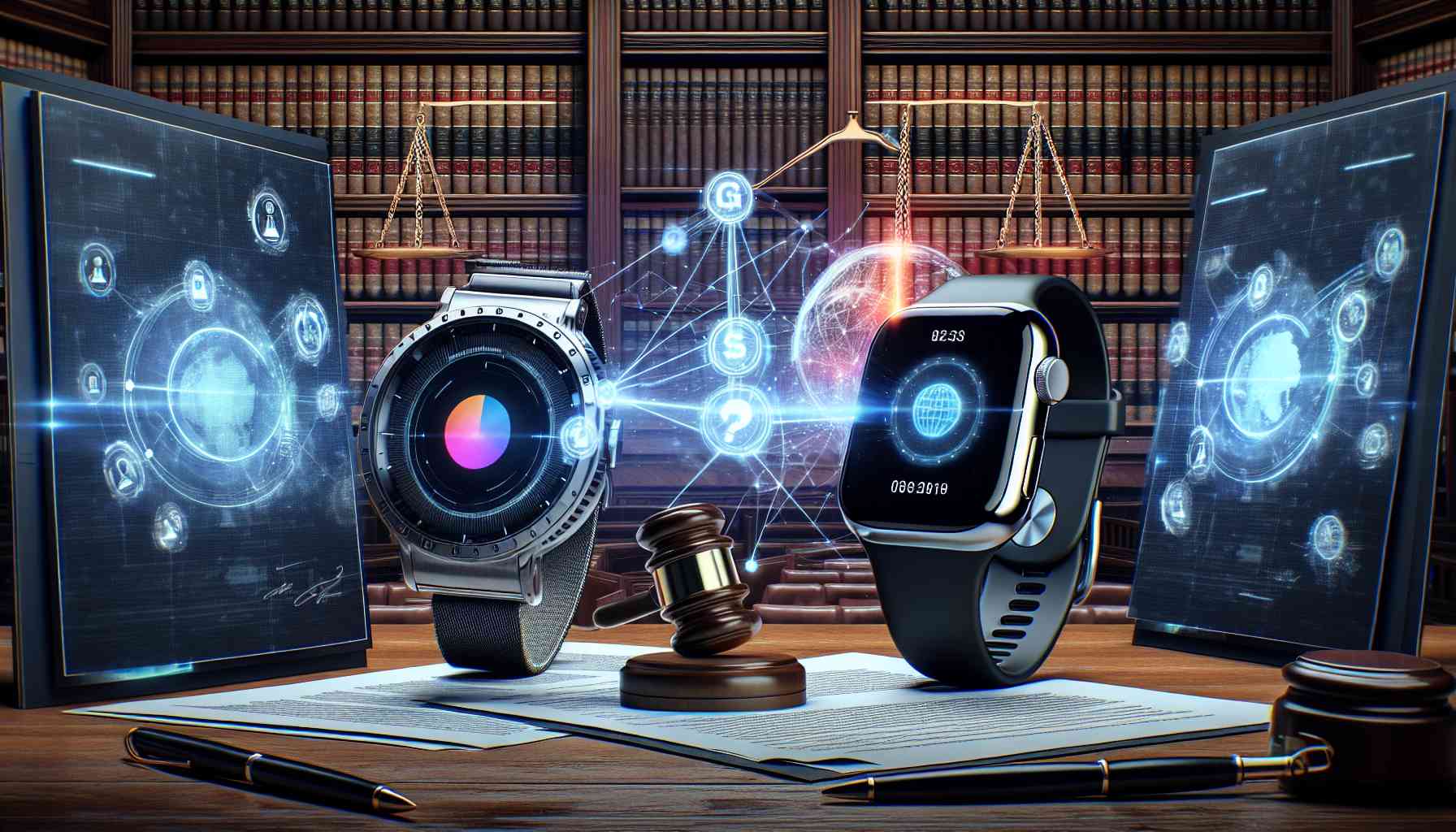The patent dispute between Apple and the technology company Masimo regarding the blood oxygen sensor in Apple Watch models has reached a critical point. The United States Court of Appeals in Washington has decided to reinstate the ban on the sale of Apple’s luxury watches until a resolution is reached in the ongoing legal battle. This unexpected ruling has put Apple in a precarious position, potentially forcing the company to remove affected devices from stores for the second time in less than a month.
Previously, the sales ban had been lifted by the appellate court, allowing Apple to resume selling specific models such as the Series 9 and Ultra 2. However, with this recent decision, the ban has been reinstated, once again leaving Apple vulnerable. Apple is currently working to convince the federal appellate court to overturn the International Trade Commission’s decision, which found that the blood oxygen sensor infringes on Masimo’s patents.
While Apple does have the opportunity to appeal this decision, the process could be lengthy, possibly taking up to a year before a final ruling is made. Consequently, Apple will have to consider two options: either suspend the sales of the banned Apple Watch models in the US until 2024 or potentially redesign the devices to comply with the International Trade Commission’s decision.
To address the ongoing dispute, Apple has received approval from the US Customs and Border Protection to make modifications that would remove the blood oxygen sensor from the watches. However, the company has yet to disclose its action plan in response to the reinstated sales ban.
Although the withdrawal of the Series 9 and Ultra 2 watches from the US market will undoubtedly impact Apple’s revenues, the company will still be able to sell the less expensive SE model, which does not feature the blood oxygen sensor.
As both companies continue to seek a resolution that serves their respective interests, Apple’s increasingly popular health monitoring capabilities on the Apple Watch have become a significant selling point. On the other hand, Masimo aims to safeguard its intellectual property rights. The outcome of this dispute will not only have implications for the sales of these specific Apple Watch models but also for the broader wearable technology industry as a whole.
FAQ: Ban on Apple Watch Sales
Q: What is the current status of the ban on Apple Watch sales?
A: The ban on Apple Watch sales has been reinstated by the United States Court of Appeals in Washington.
Q: Why was the ban reinstated?
A: The ban was reinstated after the appellate court’s recent decision, which found that the blood oxygen sensor in Apple Watch models infringes on Masimo’s patents.
Q: How long could the resolution process take?
A: It is estimated that the resolution process could take at least a year before a final ruling is made.
Q: What options does Apple have?
A: Apple can either suspend the sales of the banned Apple Watch models in the US until 2024 or potentially redesign the devices to comply with the International Trade Commission’s decision.
Q: Will the ban affect the sales of all Apple Watch models?
A: No, the ban only applies to specific models that feature the blood oxygen sensor. The less expensive Apple Watch SE, which does not have the sensor, can still be sold.
Q: How does this dispute impact the wearable technology industry?
A: The outcome of this dispute will not only affect the sales of Apple Watch models but also have broader implications for the entire wearable technology industry.
The source of the article is from the blog windowsvistamagazine.es
